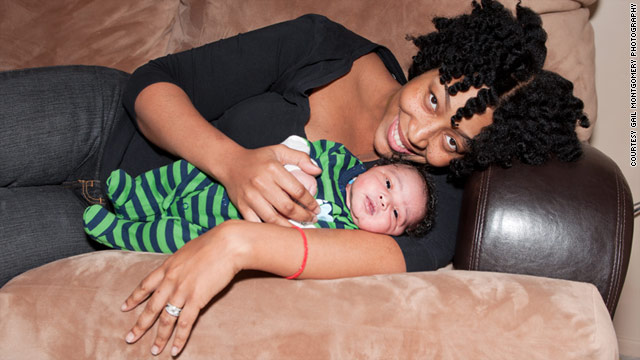How To Be A Bad Gastroenterologist
 I am a regular reader of patient blogs, and I find myself frequently gasping at the mistreatment they experience at the hands of my peers. Yesterday I had the “pleasure” of being a patient myself, and found that my professional ties did not protect me from outrageously poor bedside manners. I suppose I’m writing this partly to vent, but also to remind healthcare professionals what not to do to patients waking up from anesthesia. I also think my experience may serve as a reminder that it’s ok to fire your doctor when conditions warrant.
I am a regular reader of patient blogs, and I find myself frequently gasping at the mistreatment they experience at the hands of my peers. Yesterday I had the “pleasure” of being a patient myself, and found that my professional ties did not protect me from outrageously poor bedside manners. I suppose I’m writing this partly to vent, but also to remind healthcare professionals what not to do to patients waking up from anesthesia. I also think my experience may serve as a reminder that it’s ok to fire your doctor when conditions warrant.
I chose my gastroenterologist based on his credentials and the quality of training and experience listed on Healthgrades.com I had no personal recommendations to rely upon – so I used what I thought was a reasonable method for finding a good local doctor. When I met him for our initial office consultation he seemed rushed and distracted, without genuine curiosity about my complaints, complicated history, or how to help me find the correct diagnosis. I brushed my instincts aside, presuming he was just having a “bad day” and hoping for more time to discuss things fully once a battery of blood tests had been completed.
Sadly, I didn’t have the chance to review the results with him – instead he instructed his nurse to read me the results over the phone and to schedule me for a colonoscopy. I wanted to discuss the pros and cons of the procedure and what he thought he might be able to rule out with the test. He did not provide me with basic informed consent information, nor was he able to articulate medical necessity for the scope. I decided not to have the test, and I didn’t hear another word from him or his office.
Months later my symptoms had worsened and so I decided that a colonoscopy might help to further elucidate the potential cause. I was not able to get through to my doctor via phone, so I scheduled the test via his nursing staff. I planned to be the first patient of the day, so that we would have time to discuss my symptoms and concerns.
On the day of the procedure my physician stormed into my surgical bay and began reading my medical history to me from the computer screen, without exchanging basic niceties or introducing himself to my husband. I confirmed the information and tried to offer some nuance since our last office meeting. He cut me off, and made me feel as if my observations were completely unhelpful and were getting in the way of our scope time. He left in a rush before I felt that he had any clear sense of what we were trying to accomplish or rule out with the procedure.
A jovial anesthesiologist then entered my curtained cubicle, and made genuine human contact with me. He inquired about the reasons for the procedure and expressed appropriate glee regarding my Mallampati grade I airway. I asked him if he would be so kind as to not position me directly on my left shoulder during the procedure as it was exquisitely tender from a recent orthopedic injury. He promised to do his best to protect the injury while I was sedated.
Cut to the endoscopy suite where the gastroenterologist enters with a grumble as the techs bustle around the scope equipment and the anesthesiologist explains the slightly altered positioning for my comfort. As the propofol anesthetic goes into my vein I feel the gastroenterologist push me fully onto my injury as I lose the ability to protest.
After the procedure I’m back in my bay with my husband, groggy but with more pain in my shoulder than anywhere else. The curtain is drawn back with a yank and in marches the GI doc, relaying the unanticipated abnormal findings. I ask (in a slightly slurred tone) for more information, to which he responds in a loud voice, “You’re not going to remember any of this so just be quiet and listen!”
I persist in my attempts to understand the details to which he shouts “Shut up and listen” with increasing decibels. When I say that the findings still don’t explain my symptoms and that I remain perplexed he says that I should “try probiotics.” Finally he leaves the room, not offering any reassurance about the possibility of bowel perforation and stating that we’ll “Just have to wait for the pathology report, and it will take a while because of the July 4th weekend.”
I was dumbfounded, and not just because of my post-anesthetic stupor, but because of the open hostility showed to me by one of my peers. I asked my husband if I was out of line in my questioning and he said that I sounded “like a drunk person” but that the doctor was definitely being “an a**hole.”
As the nurses untangled me from the IV and EKG stickers and rushed me into a wheelchair and out to my husband’s waiting vehicle, all I could say was “Wow, my gastroenterologist was really mean to me.”
The nurses just nodded and suggested that I wasn’t the first to notice that.
As I recover from the whirlwind interaction with the healthcare system, I feel relief and anger. I’m relieved that my GI doc didn’t perforate my bowel and that we accidentally caught some very bad stuff early on, but I’m angry about how I was treated and feel no closer to an explanation for my symptoms than when I started investigating a year ago. My experience was probably fairly typical for many patients dealing with physicians who have lost empathy and compassion. I am sad that there are so many like that out there and I promise to do my best not to follow suit.
My bottom line on gastroenterologists (sorry for the horrible pun): Go with your gut. If your doctor displays jerk-like tendencies during your office visit, rest assured that they can bloom in time. Have the courage to find another doctor before you put your life in their hands and/or they get the chance to verbally abuse you in a post-anesthetic stupor. I am firing my doctor a little bit on the late side, but doing it nonetheless. I just hope that my orthopedist is a good egg (like my anesthesiologist) – because I’ve got one heck of a sore shoulder coming his way!



 Every once I awhile a story catches my eye as I scan the news websites. There was one this morning on CNN with this catchy title: “
Every once I awhile a story catches my eye as I scan the news websites. There was one this morning on CNN with this catchy title: “








